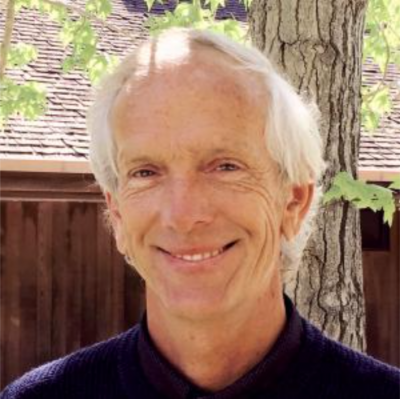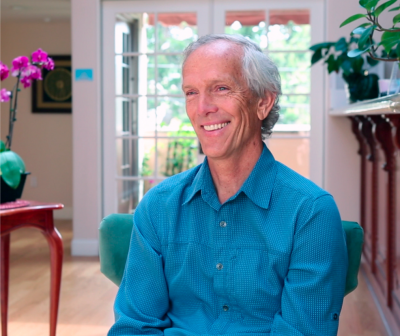Dr. Paul Mills answers the question:
What is the nicest thing a non-family member has ever done for you?
 Thank you, Phil. It’s a pleasure to begin to reminisce about that. While I have certainly had many kindnesses shown me during the course of my life, there is one in particular that comes to mind when you asked that question that I wanted to share with you.
Thank you, Phil. It’s a pleasure to begin to reminisce about that. While I have certainly had many kindnesses shown me during the course of my life, there is one in particular that comes to mind when you asked that question that I wanted to share with you.
And this took place back when I was in high school. I was in high school in a small town called Newtown, Pennsylvania. It’s an old colonial town in a place called Bucks County.
I went to a party one evening, which high school students are apt to do. And I met someone there named Glenn Davis. Now Glenn was a couple of years older than me. He was not in our particular class, but he somehow showed up at this party. And he and I chatted for a little while. And really that was it as far as the initial encounter.
Now, he went skiing in Colorado many months later. And while he was in Colorado, he saw a billboard, a sign posting, which was basically advertising an upcoming lecture for a meditation class. And that was Transcendental Meditation. You might recall back then, TM was pretty big. Kind of the way mindfulness is these days. And he told me later that when he saw that little flyer, he immediately thought of me and he remembered our conversation. Something about that conversation linked me to him for meditation. So he said he wasn’t able to attend the class, but he did call the phone number and he took the time to speak to the teacher and say, “What’s TM and what’s this all about?”
And he got some information and I guess that reinforced even more because when he came back from skiing, he took the time to find me. Which he did. And he said, “Paul, I heard about this thing called TM,” which I had not heard of at that point yet. This was in junior year, I believe. And he said, “I think this is going to be something good for you.”
So I started looking around and it turned out TM was being offered in our town, just actually about a mile down the road from where we lived. In this old abandoned farmhouse, this young couple lived who had learned to become TM teachers from the Maharishi Mahesh Yogi. So I signed up, I listened to the lecture, went there two days later and was initiated into TM. And honestly, it was a turning point for my life. I certainly had certain, we could say, spiritual inclinations prior to that, but I never really had found resonance with anything. I was aimless in that sense.
And TM from the very first meditation, I had certain experiences that were encouraging. I started studying Eastern philosophy. I ended up going to school around these ideas of philosophy and meditation. I was able to start conducting some of the earliest research on meditation, specifically TM. Of which honestly, I’ve continued much to this day studying meditation, practicing meditation. Done a lot of research on it. The last few years, maybe six, seven years I teamed up with the Chopra Foundation. And a handful of us with Deepak and some other scientists around the U.S. launched a whole series of studies around meditation and yoga that we felt needed to be done, but hadn’t been done. And so we’ve been engaged in that.
And so this kindness that Glenn showed me by first of all, just thinking of me in a certain situation and then getting more information, following up that impulse, and giving it to me. It set me on a whole path that... I know my life would be very different than it had become if he hadn’t done that. I don’t know where I would be actually, but I know I wouldn’t have developed personally the way I have and my career would not have taken anywhere near this kind of trajectory. So to me, that was a great kindness because it helped me come into a kind of fruition, a realization of my own potential as a person, and then got me into science, where I continue to this day.
I want to add that many years later, I was able to thank Glenn. In fact, when I went to graduate school to study neuroscience and was able to conduct research on meditation, I needed some funding to support myself in graduate school to do the work. And I reached out to Glenn because I knew his family had some means. They had owned a car dealership back in Bucks County. And it turned out by then he too had learned to practice meditation and he was pretty deep into TM and it resonated with him. He wanted to see some research done on meditation.
So he actually, through his family’s dealership and funding they had, he began to support my scientific research on meditation, which he did for a couple of years until I graduated. Then some of the very first publications that I did on meditation. I included him in the acknowledgement. I think I called it the Glenn Davis Foundation. I don’t know if they officially had a foundation, but that’s typically what we cite in research rather than just a person’s name.
We have not been in touch I’d say for a good 10 years. But when I last heard, he was well. And we had a good time commiserating about that fateful, honestly, it was a fateful encounter for me through him that helped guide my life path, and I’ll always remain grateful to him.
 Dr. Paul J. Mills is professor and chief at the University of California San Diego’s (UCSD) Department of Family Medicine and Public Health, and Director of the UCSD Center of Excellence for Research and Training in Integrative Health. He is Director of Research for the Deepak Chopra Foundation, with a focus on meditation and yoga within the context of traditional medical systems.
Dr. Paul J. Mills is professor and chief at the University of California San Diego’s (UCSD) Department of Family Medicine and Public Health, and Director of the UCSD Center of Excellence for Research and Training in Integrative Health. He is Director of Research for the Deepak Chopra Foundation, with a focus on meditation and yoga within the context of traditional medical systems.
In the early 1980s, Paul published some of the earliest scientific research on meditation. His work has been featured in Time magazine, The New York Times, US News and World Reports, Consumer Reports, HuffPost, and on Gaia TV, National Public Radio, and WebMD. He has presented his work at hundreds of conferences and workshops around the world, including making a presentation at the United Nations.
His current integrative medicine work focuses on better defining what is meant by the “whole person” and addressing the need to incorporate the transcendent aspects of human awareness, consciousness itself, back into medicine in order to truly understand the whole person so as to achieve optimal wellbeing.
Catalyst is produced by The Shift Network to feature inspiring stories and provide information to help shift consciousness and take practical action. To receive Catalyst twice a month, sign up here.
This article appears in: 2022 Catalyst, Issue 4: Science of Healing Summit



